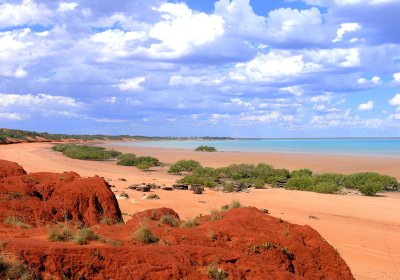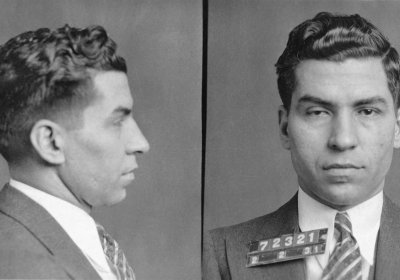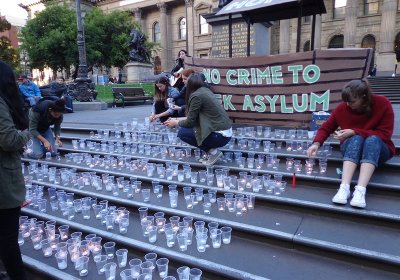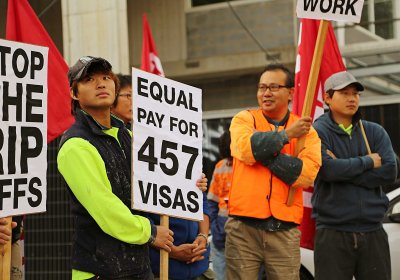The Western Australian government has finalised its acquisition of land in the Kimberley for future development, despite long-standing opposition from environmentalists and the local Aboriginal community.
The 3414 hectares of land near James Price Point — part of one of the most ecologically opulent and pristine stretches of land left in the world — north of Broome, was bought from traditional landowners as “unallocated crown land.”
The area is now under management of LandCorp and the Broome Port Authority.
989
Vocational education has become one of the fastest growing markets in Australia. There are more than 5000 private providers; half receive government funding and many accrue enormous profits.
This huge rise in private providers has made it impossible for the regulatory system to adequately police them, so there is little guarantee of the quality of courses.
But federal and state governments have embraced private providers' “user-pays” ideology rather than commit to free, high-quality public education for all as a human right.
Another round of United Nations climate talks were being negotiated in Warsaw, Poland, this week when the strongest typhoon recorded to hit land swept across the Philippines before moving on to Vietnam. Typhoon Haiyan, known locally as Yolanda, has killed an estimated 10,000 people in the area of Tacloban, mostly from the strong tsunami-like storm surges that accompanied the typhoon. Entire villages were flattened and a large rescue effort is underway to evacuate survivors.
Debate on a dangerous bill that seeks to redefine when life begins was again suspended in the New South Wales Parliament on November 14.
The Crimes Amendment (Zoe's law) (No 2) bill, introduced in August, will be debated again in the legislative assembly on November 21. Doubts remain as to whether it will be voted on then, or deferred to next year.
For as long as rulers have abused their power there has also been political satire. Satirists have used wit and comedy as a weapon against the powerful, sometimes braving imprisonment, torture or the gallows.
World War II was fought to resist fascist aggression; the Vietnam War was an imperial war of aggression fought chiefly by France and the US, alongside allies that included Australia. The wars have been well documented, but rarely will you find an account of how they were instrumental in rejuvenating and then expanding the heroin trade.
About 100 people attended a vigil for refugees in Melbourne on November 15. The action was initiated by Secondary Students for Refugee Rights (SSFRR).
Brisbane activists, academics and unionists have resolved to launch a broad community campaign to fight the Queensland Coalition government’s attack on civil liberties.
The decision was made at a forum organised by Green Left Weekly on November 12. Dr Mark Lauchs from the Queensland University of Technology, Queensland Council for Civil Liberties president Michael Cope, and assistant secretary of the Queensland Electrical Trades Union Peter Ong spoke at the well-attended meeting.
WikiLeaks published a leaked draft chapter of the Trans Pacific Partnership agreement on November 13. The leaded chapter of the propsed “free trade” deal concerned intellectual property rights — and confirms fears its provisions favour big corporations and restrict the ability of governments to regulate corporate activity.
I am a 32-year-old mother of two from suburban Perth. I am writing in regard to the case of Latifa, a 31-year-old woman of the persecuted Rohingya people of Myanmar [Burma], who recently gave birth in immigration detention. Her newborn child is in NICU [neonatal intensive care unit] and her access is strictly limited due to the harsh and inhuman policies of your department. The child has never had any contact with its father also held by your department.
All workers are treated equal, right? Same award rates for the same work, equal pay for women and uniform national modern laws. But what about workers who are not allowed to work, such as refugees on bridging visas; or workers brought by employers to Australia on 457 visas, who are used for a short time and then sent back?
Are these workers being treated equally and how can their treatment affect the rest of us in the future?
- Previous page
- Page 3
- Next page









